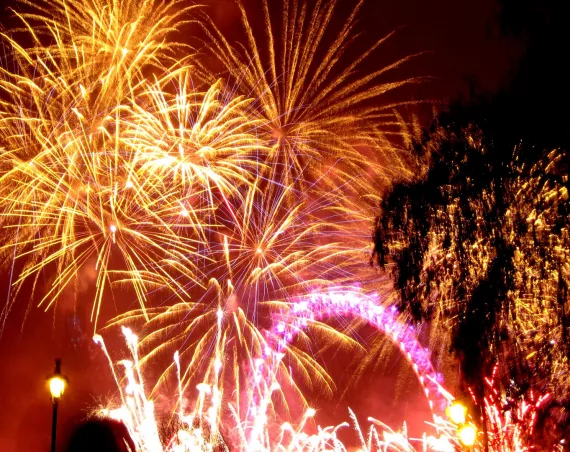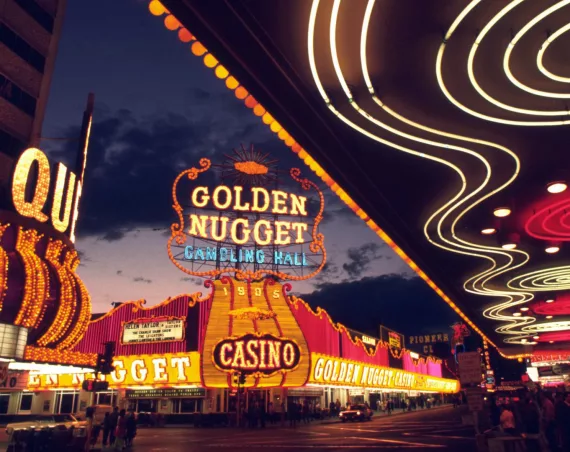
Asking questions – eating out and the cinema
Powered by RedCircle
Hello and welcome to Learn English Vocabulary. My name is Jack and I’m making this podcast for you to learn or revise English vocabulary. You can find a transcript of this podcast on LearnEnglishVocabulary.co.uk. You will also find a link to the speaking club which is a new platform I’m setting up to provide learners with a safe place to practise speaking English with other learners based around lesson materials from these podcasts.
I’m still at the beginning doing this so there aren’t many people on the site to speak to so I’m running regular conversation classes on Zoom as well, but there is going to be a speaking lesson based on the language from this podcast in the Speaking club which you can sign up to for a free trial and try out or drop me a line and see when my zoom classes are running.
Free-time activities
In this podcast, I want to talk about two activities you can do in your free time and focus on the questions you might ask in a conversation about these activities. You see, when you first meet someone, it’s nice to ask questions to find out about them. I’m going to talk about free time activities because they are good topics – they are uncontroversial.
Controversial
Controversial is an adjective that we use to describe something that causes arguments and discussions. Politics, religion and taboo subjects like sexuality are probably not good topics to talk about when you first meet someone because they are controversial. However free time activities should be more straight forward and uncontroversial.
Pronunciation
Before I start talking about the topics, I want to focus on pronunciation. You see in this podcast, I am going to look at the questions you might ask someone to get to know them. In English, questions are really contracted – that is, the words all run together.
I’m going to present two question forms: Yes no questions and Wh+ questions. The yes/no question for this podcast is: do you like plus an object. Do you like is contracted to /djə laɪk/.
You can use this to ask if someone likes anything: Do you like the colour red? Do you like dogs? Do you like learning English? Do you like listening to podcasts?
The second question form, a wh+ question starts with a question word: What, where, who, how, when and then has an auxiliary verb and a subject. In this podcast, this will always be do for the auxiliary verb and you. What do you – in regular spoken English, this becomes /wɒdjə/ – /wɒdjəwɒnt/ = What do you want? Or Where do you live? How do you like your steak?
For the rest of the podcast, when I use the questions, I will say them as naturally as I can so they might be difficult to make out, but I’ll give you a lot of warning so you should be able to hear them.
Going for a meal
I’m going to talk about two free time activities: going for a meal in a restaurant and going to the cinema. I’ll start with going for a meal.
If you are making a plan with someone, say you are hungry right now and you want to go and get something to eat right away, you can ask what kind of food do you fancy?
If you’re talking in general, you ask what kind of food do you like?
If you are asking about food, you would probably not ask something so general. I mean, you could say: What kind of food do you like or what’s your favourite type of food, but I think more often, I would ask about specific cuisines first.
Different cuisines
A cuisine is a food from a specific country, but it’s not a common word. Normally, we talk about food from different places. So you might ask: Do you like Italian food? Once it’s clear you’re talking about food, you can drop the word food and just say the country adjective or sometimes region. So you could ask: Do you like Indian food?
Indian food
In the UK, we have lots of Indian restaurants, but interestingly, they are often run by Bangladeshi or Pakistani people, but we call all South Asian food Indian food. Also, in the UK, Indian food is similar to food in India, but it’s all been adapted and it’s not as varied as food from South Asia. It’s kind of British Indian food.

Indonesian food
My wife is from Indonesia and I love Indonesian food which is incredibly varied as Indonesia is amazingly rich culturally – there are so many different foods from Indonesia, but sadly, there are very few Indonesian restaurants here. There are some Thai restaurants, but I’m not sure how authentic the food is.
Authentic food
Authentic means real or true to its origin. It can mean genuine, this painting is an authentic Picasso and then the opposite is fake. But for food, it means that the cuisine you are eating say in the UK is the same as the food if you ate it in the country it comes from.
Spicy food
When people talk about food from India and South East Asia, you’re going to end up talking about spice. Do you like spicy food? I used to hate spicy food. When I was a child, the feeling of a burning mouth from eating chillis was horrible. I avoided anything spicy. I quite like spicy food now, but food is normally quite bland in the UK. You get little chilli icons on menus to warn you that the food is spicy, but it’s rare to find anything that’s very spicy.
Simple adjectives
Here are some more quickfire adjectives you can use to describe food:
- Sweet – with sugar or honey
- Sour – with an acid taste like vinegar or lemon juice
- Bitter – this is similar to sour, but you use it with things that taste sharp.
- Salty – with lots of salt
- Peppery – a bit like spicy, but with a strong flavour of pepper
- Bland – with no flavour
- Rich – this can be used to describe any flavour that feels heavy in your mouth – you use it to describe food that you only want to eat a little of.
A sweet-tooth
If you really like sweet food, cakes and pastries and sweets and icecream, you might say you have a sweet tooth. You might ask someone if they have a sweet tooth and use the question: Have you got a sweet tooth? or: Do you have a sweet tooth? I bring these up because of the question forms which you can use to ask about all kinds of things. Listen to the contracted forms: Do you have a sweet tooth: /djəhævə/ sweet tooth? And Have you got a sweet tooth? /vəjəgɒdə/ sweet tooth? I’ll say that one slowly: /vəjə gɒdə/ sweet tooth – Have you got a sweet tooth?
Recap – questions
To recap, the questions you could ask when talking about going for a meal are:
- What kind of food do you like?
- Do you like Chinese food?
- Do you like spicy food?
- Have you got a sweet tooth?

Going to the cinema
Let’s move on to another free time activity: going to the Cinema
Everyone likes going to the cinema, don’t they? I used to live in Jakarta and there was a IMAX cinema in my nearest shopping mall. I would watch pretty much anything on an IMAX – it was such a good cinema. OK – so what sorts of questions could you ask someone about going to the cinema? Do you like going to the cinema? That’s not really good enough … as I said, everyone likes going to the cinema.
Types of films
What you could ask is what types of film someone likes. Now, when I’ve taught the vocabulary related to types of film in language schools, in the books, it always says genres of films. However, in the UK, we rarely use the word genre and I would never use it with someone I had just met and was trying to get to know. I would ask: What sort of film do you like? Or if I think that the person is a film buff, I might ask: what sort of films are you into?
You could ask what kind of films, but it feels a bit stiff to me. For some reason what sort of film is more natural. Here’s another slightly strange bit of language. When you ask someone about their preferred genre of film, you ask “what sort of film do you like?” but if you are talking to a film buff, a film fan, the sort of person that watches lots of films, you could ask “what sorts of films do you like?” Earlier, I used the question: What sort of films are you into? If you are into films, then you probably love films and watch loads of them so it feels more natural to ask about the sort of films. This is a bit weird as both film and films are OK in both questions, but sound more natural to me if you use film for the general question and films for the film buff.
Top genres
The American Film Institute has a list of the top 10 film genres:
- Animation – films made from pictures either hand-drawn like old Disney or computer-animated.
- Courtroom drama – these are films that focus on a trial
- Epic – These are large scale films that set in the past and are usually really long
- Fantasy – these are films that are about people and animals with skills and powers that you don’t find in the real world
- Gangster – these are films about organised crime and criminals
- Mystery – I don’t think this is a normal genre – the AFI says these are films that are based on solving a crime
- Romantic comedy or rom-com – these are romantic stories with funny bits
- Science Fiction – these are stories about the future that feature futuristic technology and space travel
- Sports – these are films about sports teams or athletes
- Western – these are films about cowboys set in the American West between the end of the civil war and around 1910.
If you are having a chat about films, you might ask someone do you like westerns? Or perhaps are there any sorts of film that you don’t like?
Horror and thriller
This list doesn’t include horror films which are scary films with supernatural monsters or thrillers which are tense films, often covering the same topics as the mystery genre in the AFI list. Most films are combinations of genres, but this language is useful when talking about films in general.
Actors and actresses
If you do like films, then you probably have favourite actors. You could ask: Do you like Nicholas Cage films? By the way, in most professions, we have stopped using gender-specific job titles. We say, police officer, not policeman or WPC as we used to. I think because of the Oscars, and other award ceremonies, we still say actress. However, this sort of language is dropping out of use so in a few years time this might be out of date.
Directors and composers
You might also have favourite directors, the person in charge of how the film is made. Lots of people have favourite film score composers, the people who write the music for the film. The score is the music composed for the film. If a film uses music that wasn’t composed for the film, it’s the film soundtrack.
Recap – questions
To recap the questions from this section:
- Do you like going to the cinema?
- What sort of film do you like?
- Do you like science fiction?
- Do you like Quentin Tarantino films?
Conclusion
I hope you have enjoyed this podcast and if you are interested, please do come to check out the podcast page on learnenglishvocabulary.co.uk and check out the speaking club where you can practise using these questions and the vocabulary from this podcast.
If you have enjoyed this podcast, please leave me a comment or a rating or a review. I love to hear from you and any comments or suggestions you have. If there are any topics or songs or scenes from a film that you would like me to talk about or anything else you would like to hear, I would be delighted to make a podcast for you. So please visit LearnEnglishVocabulary.co.uk and say hello.
Thanks for listening.





2 Comments
Mostefa J.Mohammed
this is the first time i listen and i love the way you use to review all the vocabulary and phrases during take about all of this subject,
from Iraq i say hay to you 😀
aron berihu
i really appreciate the way you describe but if would have be a question on it would be more better than this